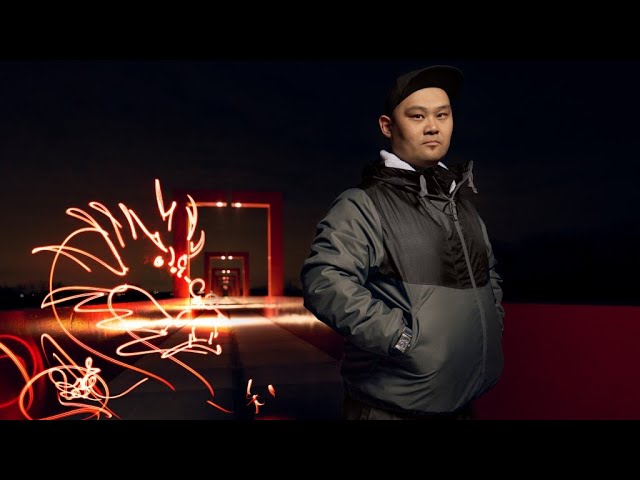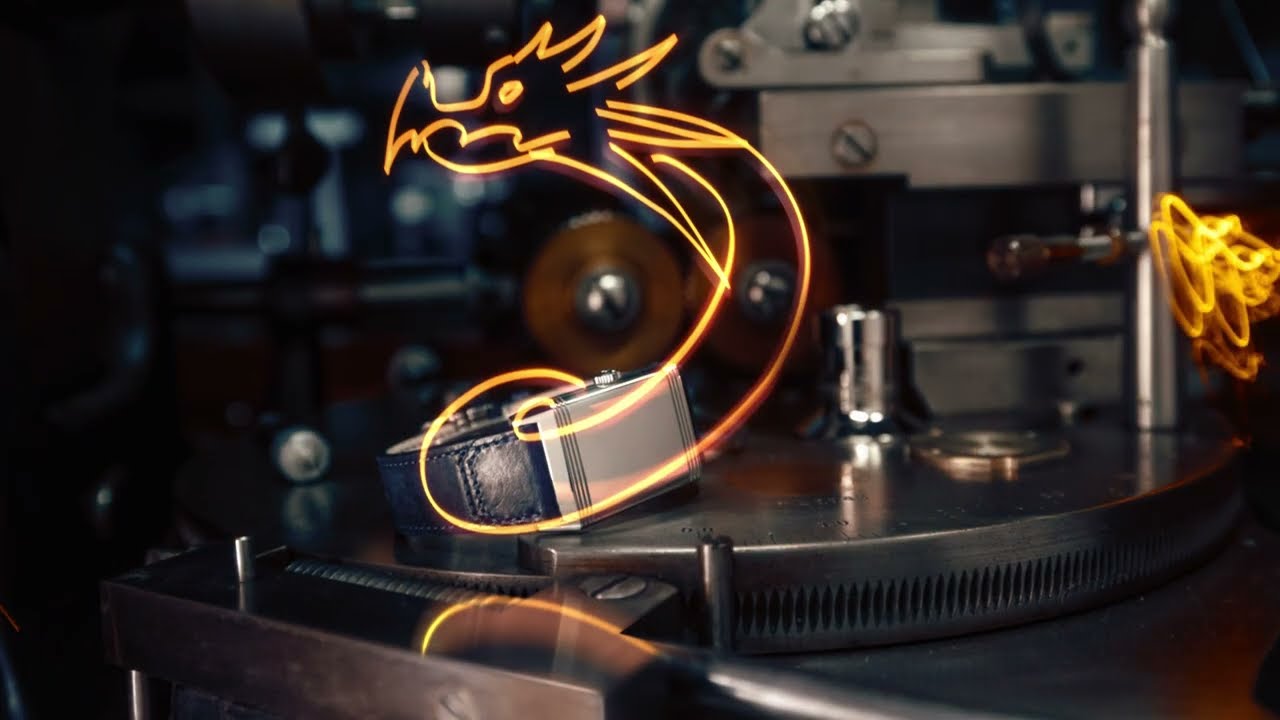• A modern twist to ancient traditions: the collision of light and photography
• Three exploratory photographs and one stop-motion video made with light-painting
• The challenge of scaling down a life-sized format to the tiny size of a wristwatch

Jaeger-LeCoultre unveils the latest collaboration under its Made of Makers programme – a series of artworks created by Chinese street light-painter Roy Wang. In tribute to the pursuit of precision that has been a central value of La Grande Maison since its founding almost 200 years ago, the commissioned works – three light-painting photographs and a stop-motion video – will make their public debut on the opening day of ‘The Precision Pioneer’ exhibition in Dubai, which runs from 7–19 May.


Through a series of collaborations with artists, designers and craftsmen from disciplines outside watchmaking, Made of Makers explores and extends the dialogue that naturally exists between horology and art. The programme focuses on artists who share Jaeger-LeCoultre’s values of creativity, expertise and precision, exploring new forms of artistic expression through different and often unexpected materials and media. Like the watchmakers of La Grande Maison, these artists and innovators have a deep respect for the past as their creative foundation and a springboard for their trailblazing work. To date, the Made of Makers community has embraced the worlds of contemporary art, gastronomy and music – with artists including Zimoun (Switzerland), Michael Murphy (USA), Guillaume Marmin (France), lettering artist Alex Trochut (Spain/USA), pastry chef Nina Métayer (France), mixologist Matthias Giroud (France), digital media artist Yiyun Kang (Korea), musician Tøkio Myers (UK), multi-media artist Brendi Wedinger (USA) and, in 2024, Chef Himanshu Saini (India) and Roy Wang (China).

Rapidly gaining international recognition for his dynamic and visually arresting works, Roy Wang is breaking new ground in the use of light and movement in photography. Born in Beijing, his unusual career path has provided the life experiences that inform his work: after completing university in 2009 he left China to become a professional rugby player in Japan. Travelling around his new country, he began to carry a camera everywhere and taught himself the techniques of photography through constant practice.

One day, he chanced upon a black-and-white photograph from the 1949 collaboration between Pablo Picasso and the pioneering Life magazine photographer Gjon Mili, in which Picasso uses a small flashlight to sketch in mid-air, captured by Mili using a slow shutter speed. The image had a profound impact on Roy Wang and that very night, he went out with a flashlight and made his first attempt at light-painting.

Unlike in traditional photography and figurative art, in which the artist endeavours to capture the effect of light falling on the subject, for Roy Wang, light is the medium that creates the subject out of dark nothingness. Often set against urban backgrounds, his light-paintings combine references from Chinese culture and mythology with pop culture iconography and elements of calligraphy.

Since the dawn of time, people have been fascinated by the effect of light against the dark night sky – picking up burning sticks from a fire and sketching patterns against the void. However, it wasn’t until the advent of photography that it became possible to create enduring works of art in this way. In essence, light-painting is the art of ‘drawing’ images with a moving light, and capturing the process on camera with a single, long exposure – usually a minute or more.

Working at night, Roy Wang uses darkness as his canvas and light as his paintbrush, facing the camera and shaping his images in the air with no visual guidance. (He sees what he has created only in the resulting photograph.) Rather, he must rely on spatial memory, muscle memory and imagination. He credits his years as a professional sportsman for helping to develop the deep muscle memory that he employs in his art. The artist dresses in black while creating the work, becoming absorbed by the surrounding darkness and invisible in the finished image.

“I describe my art as the pursuit of the unknown because I must work towards an imagined result – I can’t see what I’m making until after it has been captured by the camera,” says the artist. “The process is very fast; it takes only a minute or two, but the planning is very lengthy. I must envision the image, the exact gestures that I will make to ‘paint’ it, the invisible ‘frame’ that must contain those gestures, and the perfect positioning of my body and the light source in relation to the frame and camera. Part of the magic of light-painting is that the light effects vanish as soon as they are created, yet they live forever through the photographs.”

The four art pieces that Roy Wang has created for Jaeger-LeCoultre – a stop motion video and three experimental photographs – presented even greater challenges. Asked to scale his work down to the tiny dimensions of watchmaking, required major technical adaptation. First, to create patterns of the desired finesse, he had to develop completely new, miniaturised light-tools – most of which are as small as a movement component. Second, he had to develop entirely different gestures: rather than the sweeping arm movements and whole-body motion that he normally uses, the artist had to master tiny movements of the hand and wrist – more akin to those of a watchmaker – with every gesture perfectly judged and precisely controlled. Along with meticulous planning this required a great deal of practice, until the new gestures became almost second nature. In many ways, the artistic process mirrors the preparation and precision, the technical knowledge and artistic sensibility inherent in every Jaeger-LeCoultre timepiece.

For the three photographs and stop-motion video, Roy Wang has combined elements drawn from Chinese tradition with his experience of visiting the Manufacture in the Vallée de Joux and discovering watchmaking in depth – particularly the different aspects of precision that he observed. In his signature style, he plays with shape, colour and dynamic lines to create visually captivating, one-of-a-kind works.


For the stop motion video, The Dragon of Time ( 时光绘龙 ), the artist combines his light-painting skills with stop motion animation – the technique in which the subject is manipulated between photographs shot at dozens of frames per second, to give the appearance of movement once the frames are spliced together. The Dragon of Time employs one of Roy Wang’s signature motifs, the dragon, which takes viewers on a fantastical journey through the Jaeger-LeCoultre Manufacture in the Vallée de Joux.


“With his light-painting, Roy Wang brings an original and exciting dimension to our Made of Makers programme,” says Catherine Rénier, CEO of Jaeger-LeCoultre. “Founded on our deep belief in the convergence of craftsmanship across many disciplines and cultures, Made of Makers celebrates the strong affinity that exists between the artistic world and our Maison. To collaborate with an artist like Roy Wang, who is constantly expanding his artistic vision, allows us to explore uncharted territories where precision, creativity and passion intersect.”












Copyright © 2026 Watch I Love Media